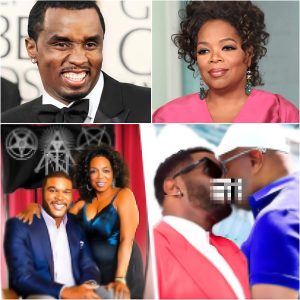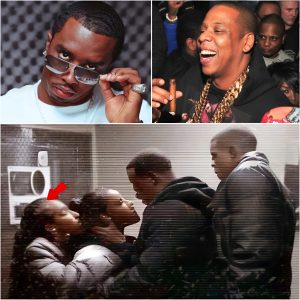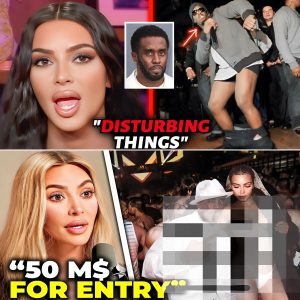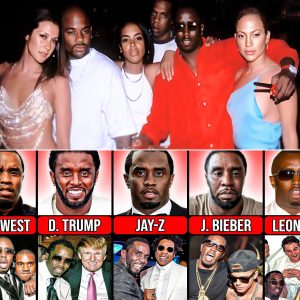Mo’Nique’s Hollywood Struggles: Allegations of Blackballing and Industry Exploitation

Mo’Nique, the Oscar-winning actress known for her roles in Precious and The Parkers, has been a vocal critic of Hollywood for years. In recent videos, Mo’Nique has shared her experiences of being blackballed by powerful industry figures, including Oprah Winfrey, Tyler Perry, and Lee Daniels. These allegations have sparked widespread discussion about the exploitation of black actors in Hollywood, shedding light on the challenges that many African American actors face in an industry often dominated by powerful elites. The video in question delves into Mo’Nique’s claims, presenting additional evidence and interviews with other actors who have had similar experiences.
Mo’Nique’s Allegations: Blackballed by Hollywood Elites

One of the most significant aspects of Mo’Nique’s public statements is her claim that she was blackballed by influential figures in Hollywood after she refused to promote her film Precious in a way that she felt was unfair. According to Mo’Nique, she was offered less money for promotional duties than her co-stars, and when she rejected the terms, it led to her being ostracized by powerful individuals like Oprah Winfrey, Tyler Perry, and Lee Daniels.
In interviews, Mo’Nique has described feeling pressured by these industry figures to comply with their expectations, even at the expense of her own career and principles. She claims that after speaking out, she was systematically pushed out of the Hollywood mainstream, with many doors closed to her in the years that followed. Her claims have ignited debates about the power dynamics in Hollywood and the ways in which actors, especially black actors, are exploited and controlled by those at the top.
The Exploitation of Black Actors in Hollywood

Mo’Nique’s allegations are part of a broader conversation about the exploitation of black actors in Hollywood. Many actors, particularly those of color, have spoken out about being undervalued, underpaid, and given fewer opportunities compared to their white counterparts. Mo’Nique has consistently argued that there is a systemic issue in the entertainment industry that disproportionately affects black talent.
She has also accused Hollywood power players of using black actors for their own gain while failing to provide them with fair treatment or recognition. This exploitation, Mo’Nique claims, is a key factor in the blackballing she faced after Precious. By sharing her story, she hopes to bring attention to the industry’s need for reform and create a space for other marginalized actors to speak out.
Interviews with Other Actors: Similar Experiences with Tyler Perry
The video also includes interviews with other actors who have shared their own stories of exploitation and mistreatment by Tyler Perry, one of the industry figures named in Mo’Nique’s allegations. Several actors have come forward to describe their difficult experiences working with Perry, noting his control over their careers and his tendency to push actors into unfavorable contracts.
Some actors have claimed that Perry, who is known for his successful Madea franchise, has used his influence to maintain power over their careers, offering limited opportunities for growth and keeping them in low-paying roles. These testimonies align with Mo’Nique’s narrative of being manipulated and controlled by powerful figures in Hollywood.
Tyler Perry’s Response to Mo’Nique’s Allegations
Tyler Perry has publicly addressed Mo’Nique’s accusations, expressing disappointment and defending his actions. In various interviews, Perry has claimed that Mo’Nique’s refusal to promote Precious as asked was the root of their falling out. He also stated that he has always supported Mo’Nique’s career, offering her opportunities in his films, despite her claims of blackballing.
Perry has maintained that he believes in empowering black actors and has created a platform for them through his films and television projects. However, critics argue that his actions toward Mo’Nique and other actors contradict this narrative of empowerment, particularly if the allegations of exploitation are true.
The Impact of Mo’Nique’s Claims on Hollywood
Mo’Nique’s outspoken stance has sparked important conversations about the ways in which Hollywood treats its actors, especially those from marginalized communities. Her willingness to speak out against the industry’s powerful figures has not only drawn attention to her own mistreatment but also shed light on the broader issues of systemic inequality and exploitation that exist within Hollywood.
The video discussing Mo’Nique’s allegations is part of a growing movement to expose the power imbalances and toxic culture in the entertainment industry. As more actors and industry insiders share their stories, it becomes increasingly clear that Hollywood’s treatment of black actors and other marginalized groups needs to be addressed.
The Need for Industry Reform
Mo’Nique’s journey highlights the need for significant change in Hollywood. The exploitation of black actors and the blackballing of outspoken individuals are part of a larger issue that calls for greater transparency, accountability, and fairness in the industry. Mo’Nique’s allegations have opened a dialogue about the treatment of actors, especially those who dare to speak out against powerful figures in the industry.
Her experience also serves as a reminder of the challenges faced by many black actors in Hollywood, where opportunities can be limited, and success is often contingent upon aligning with powerful industry figures. The entertainment industry must evolve to provide equal opportunities, fair pay, and respect for all its talent, regardless of race, gender, or background.
Conclusion
Mo’Nique’s allegations of being blackballed by Oprah Winfrey, Tyler Perry, and Lee Daniels have brought to light significant issues within Hollywood. Through her bravery in speaking out, Mo’Nique has sparked a wider conversation about the exploitation and mistreatment of black actors, and the need for reform in the entertainment industry. As more actors share their own stories, the hope is that Hollywood will begin to change its ways and create a more inclusive and equitable environment for all artists.





